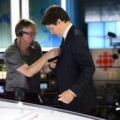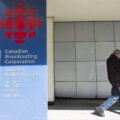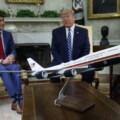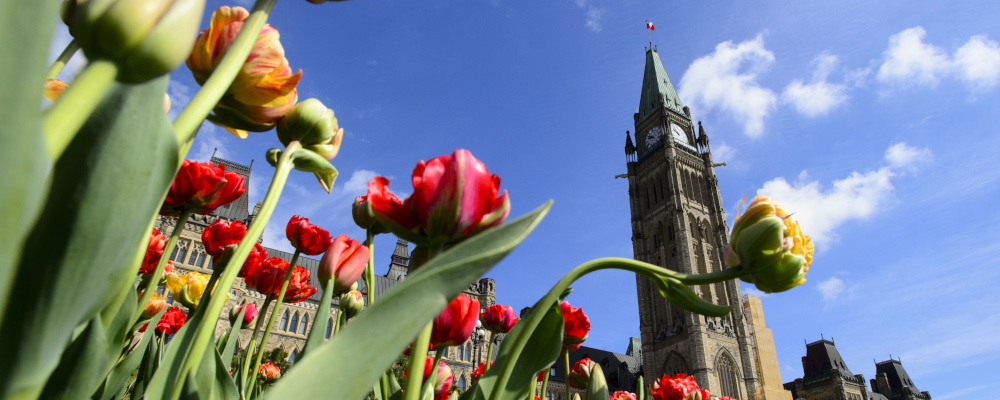There are plenty of reasons to feel a bit down these days.
The coronavirus has had devastating health effects on our society. Government-mandated lockdowns have imposed significant economic and social costs on businesses, communities, households, and individuals.
Our politics and governance are regularly disappointing. Much of our culture, especially online, is both atomized and polarized. We seem to have lost a collective sense of aspiration and confidence.
The Hub is a conscious effort to push back against this post-modern malaise. Despite our many challenges, we are resolutely optimistic about the future of our country, society, and communities.
Our hopefulness is not just an expression of empty positivity either. This is not a real-life instance of the popular “everything is fine” meme with the dog in the burning house. We really mean it. Canada can have a different and better future.
Our optimism is rooted in an attitude about the future that differs from the prevailing one. The future is not some autonomous force that unfolds according to its own logic. We cannot, as Silicon Valley investor Peter Thiel says, just sit back, eat popcorn, and watch the movie of the future play out.
It is one of The Hub’s core assumptions that our actions and choices (including inaction and non-choices) necessarily extend far beyond the current moment. We are, for better or for worse, agents of the future. An aggregation of our individual and collective choices will ultimately shape the society that subsequent generations inhabit.
The late, great Canadian-raised writer Charles Krauthammer summed up this sentiment in a famous 2009 speech: “decline is a choice.” A less pithy yet more positive framing might be that a different and better future is indeed within our reach if we have the foresight and discipline to make the right choices. But no matter how one describes the basic idea, it requires that we have a clear conception of the future and a concrete plan to realize it.
We must restore a greater degree of intentionality and purposefulness for how we think about the future. We need, as Thiel has put it, “to get back to the future.”
This future orientation is needed now more than ever. Advanced economies have steadily narrowed their horizons. A distinct smallness has cast a shadow on our collective ambitions. Modern politics, in particular, has fallen victim to the narcissism of the now.
The source of this short-termism is complex. A mix of conspicuous consumption, social attenuation, and aging demographics is no doubt partly to blame. There is also a role for ideas, which, as American scholar Richard Weaver famously wrote, “have consequences” after all.
Most critiques of so-called “neoliberalism” are boring and overwrought. But where they may have a point is that a rightful recognition of the efficacy of markets (which, of course, have made such a positive contribution to modern life) has at times manifested itself as an apathy about our ability to shape our own circumstances and the broader world around us.
It is almost as if we have collectively decided that the future unfolds according to spontaneous and decentralized market forces and so there is nothing for us do about it. In fact, if anything, public policy risks distorting the whole process. Nobel Prize-winning economist Friedrich Hayek’s essential insight about the “fatal conceit” risks itself falling into a fatalism about human agency.
A lack of future orientation is harmful to our politics and society. It contributes to reduced expectations, feelings of anxiety and attenuation, and zero-sum thinking. It is notable, for instance, that only 13 percent of Canadians now believe that future generations will have a better quality of life than we do (compared to 88 percent of Chinese adults and fully 94 percent of youth who are optimistic about the future of their country).
This is not, by the way, mere coincidence. Research actually shows that humans have a natural hard-wiring for a futuristic vision. Psychologists refer to this impulse as “prospection” or “future mindedness.” Leading scholars have shown that it is “a core organizing principle of animal and human behaviour.”
It is no surprise therefore that the lack of a future vision rooted in growth, dynamism, and opportunity has actually contributed to a vicious cycle of stagnation, scarcity, and short-termism. People need something to aspire to and, if they are not given it, they can fall victim to pessimism and polarization. As The Hub’s editor at large Sean Speer has written: “we have come to be stuck in the monotony of the present.”
The Hub’s goal is to break us free from this cycle. It will commission original analysis and insights with the overriding intent to reorient popular debate in Canada to the big ideas that will propel us collectively towards a different and better future.
Readers will not necessarily agree with the studies we publish, writeups we produce, or interviews we conduct. That is to not only to be expected, but it is something that we welcome and encourage. If we are to exercise our agency over the future fully and wisely, we need to have a thoughtful and spirited debate about the kind of country that we want. The Hub is committed to facilitating this debate. That is ultimately the only way for the best ideas to emerge and lay to claim Canada’s future.
Sixty-three years ago this month, then-opposition party leader John Diefenbaker kicked off the 1957 federal election campaign with a big-picture speech at the historic Massey Hall in Toronto. His remarks conveyed an ambition and boldness about the future that would have been familiar in the period of dynamism and progress between the end of World War II and the Canadian centennial but discordant with our national mood in 2021. He declared with his characteristic evangelical fervour:
“My friends, this is a time for greatness in planning for Canada’s future. Unity demands it; freedom requires it; vision will ensure it.”
If vision is the path to future greatness, then The Hub dedicates itself as a place for thinkers and writers from different backgrounds and perspectives to come and shape such a vision for Canada in the twenty-first century. It is time to get back to the future. Welcome to The Hub.
On behalf of the Hub Team.
Rudyard Griffiths
Amal Attar-Guzman
Luke Smith
Sean Speer
Stuart Thomson
Ken Whyte
Recommended for You

Samuel Ragot and Daniel Béland: Poverty among persons with disabilities is a policy choice

The Weekly Wrap: Nostalgia is not a good enough reason to keep the CBC around

Harrison Lowman: Why conservatives despise the CBC, why they can’t wait to tear it to shreds, and why they have a point

Need to Know: Two views on how to manage Canada’s rocky relationship with the U.S. and what it will take for us to meet our NATO obligations



